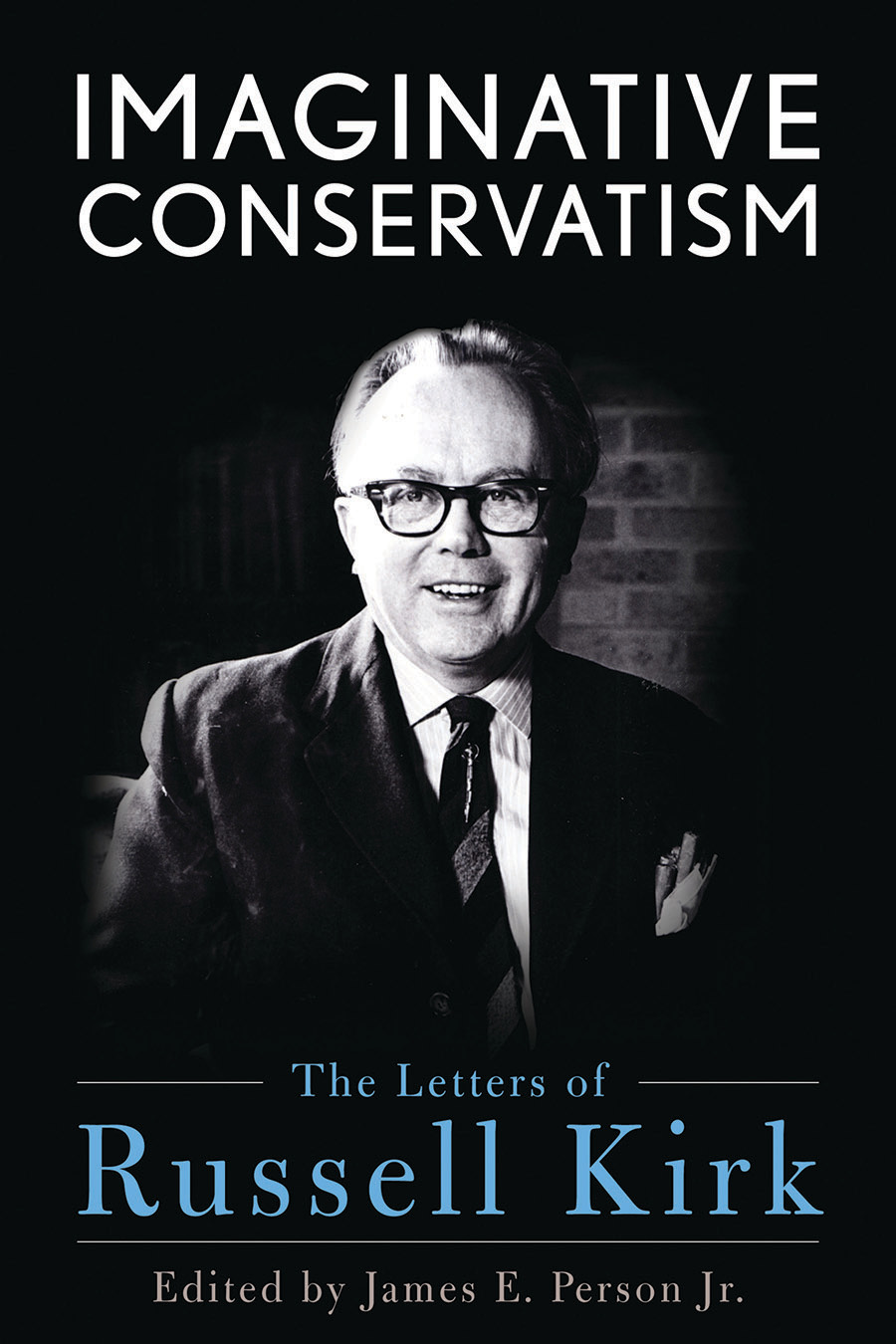Imaginative Conservatism: The Letters of Russell Kirk
A prolific author and wise cultural critic, Russell Kirk kept up a steady stream of correspondence with friends and colleagues throughout the world, but these letters have never been published until now. In Imaginative Conservatism: The Letters of Russell Kirk, editor James E. Person, Jr. presents for the first time 190 of Dr. Kirk’s most provocative and insightful letters. Published by the University of Kentucky Press in 2018, the collection includes correspondence between Kirk and prominent figures T. S. Eliot, William F. Buckley Jr., Ray Bradbury, Arthur Schlesinger Jr., Charlton Heston, Nikolai Tolstoy, Wendell Berry, Richard Nixon, and Herbert Hoover, among many others. In addition, there are letters to less famous but no less significant friends, family members, colleagues, students, and ordinary readers of Dr. Kirk’s syndicated column. The volume provides insight not only to substantial autobiographical information, but to the twentieth century’s influential interpreters of American political and culture.
In National Review, Gerald Russello wrote that the publication of this collection of Kirk’s considerable correspondence “it is a great service to American intellectual history generally and to that of conservatism in particular.” The full review can be found here:
https://www.nationalreview.com/magazine/2018/05/28/little-money-but-good-canoeing/

More From Our Highlights & News
A Look at the 2024 Richard D. McLellan Prizes Gala
Step inside the inaugural McLellan Prizes Award Gala honoring grand prize recipient, Greg Lukianoff, and two academic award winners, Josiah Joner and Samuel Goldman with full video and photos.
2024 Richard D. McLellan Prizes winners announced
Our Inaugural McLellan Prizes Award Gala will honor grand prize recipient, Greg Lukianoff, and two academic award winners, Josiah Joner and Samuel Goldman.
Announcing the Inaugural Richard D. McLellan Prizes Award Gala
On December 5, 2024, the Russell Kirk Center will host the inaugural Richard D. McLellan Prizes Award Gala in Grand Rapids, Michigan, at the historic Amway Grand Hotel.The event, hosted by a distinguished prizes Jury, will honor the grand prize recipient of the 2024...
The Richard D. McLellan Prizes in the Wall Street Journal
On Thursday, May 23rd, the Wall Street Journal ran an op-ed that former Michigan Governor John Engler and Kirk Center CEO Jeff Nelson wrote announcing a new Kirk Center initiative aimed at offering a constructive response to the free speech and academic freedom...